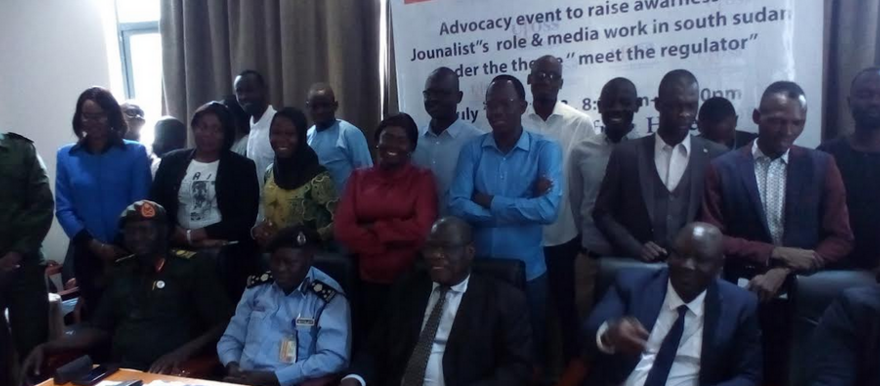At least 37 journalists and representatives from the media authority, police, and army earlier in the week attended a workshop on the role of the media to chart ways of working collaboratively before and during the elections slated for the end of 2024.
Speaking at the beginning of the workshop, UJOSS President Oyet Patrick said that as the general election slated for 2024 nears, it is vital that the media and security sector sit together to discuss how to work together.
According to Oyet, reporting about elections in a country like South Sudan that has witnessed widespread conflict can be challenging and requires that all the institutions involved in the process sit and brainstorm.
“We have seen already seen ongoing movement as far as the election is concerned and our role as journalists is key in ensuring that we provide accurate information to people regarding the elections,” he said. “This requires that we come together with the security sector, the media authority as a regulator, the National Communication Authority, and even parliament. It is good that we come together and look at the challenges that we are facing and find ways of resolving them.”
Updating the participants on the media landscape in the country, Oyet said cases of harassment have reduced in the past few months.
“I can say without fear or contradiction that we have seen some progress,” Oyet added. “Issues to do with freedom of expression or the media are not easy to deal with all over Africa. And in our case, we have seen some progress.”
For his part, the deputy spokesperson of the police, Brigadier Gen. Dak Carlos, commended UJOSS for conducting the advocacy engagement saying it has built and strengthened relations between the media and security sector.
“The media have ever been calling us for empowerment and enlightenment workshops to close the gap that has existed. If you can sit in with an enemy, I think you become friends and make love,” he said. “We used to fear media and media used to fear us, but with all of us having a conversation and discussions, we are trying to mend.”
Gen. Dak said there is no journalist currently under detention.
Meanwhile, Simon Deng, a journalist from Dawn Newspaper who attended the workshop, urged security personnel to protect journalists as they go about their work.
“I would like to say that what we want as media is for the security to stand with us,” he said. “I am happy to hear Gen. Dak saying that they are going to promote freedom of expression to make sure that the media environment is conducive.”
Deng has also appealed to the media authority as to ensure journalists are given access to information to ease their work.
Another participant, Laiya Osman, confirmed that since the media fraternity and the security sector started holding engagements, there has been slight progress in media freedom in the country.
The half-day engagement workshop tackled topics such role of security forces in promoting media work in South Sudan and the challenges faced by UJOSS and the media authority in executing their mandates.




